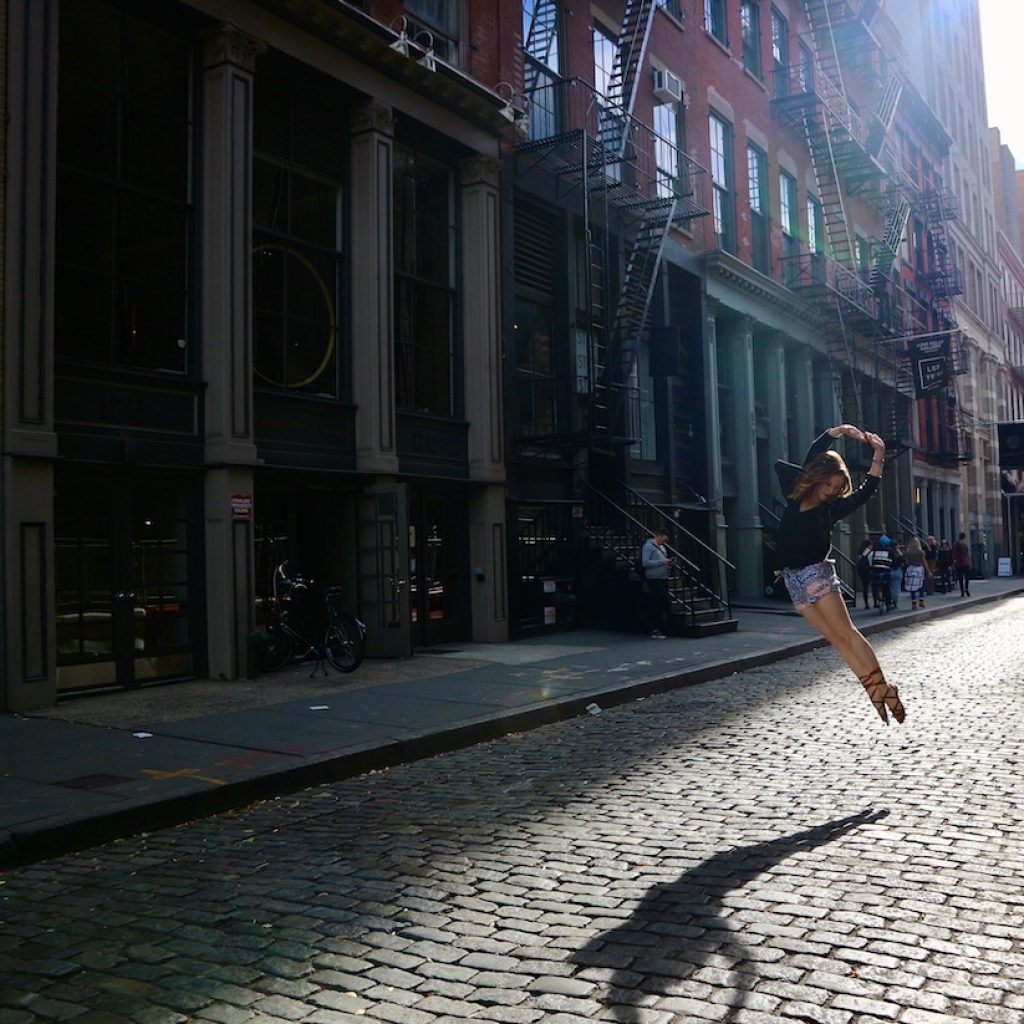Scorching canine and cola in hand, seasoned dance critic Theodore Bale entered a packed stadium – full of individuals there to not take pleasure in music or sports activities, however dance. That was solely one cease, one stadium stuffed with followers, on a So You Suppose You Can Dance (SYTYCD) nationwide tour. “How may extra choreographers and inventive administrators throughout America get a bit of this motion? What are they doing, or not doing, as a way to command such showering consideration from an clearly keen public?” he wonders.
SYTYCD’s newest season (#19) premiered in February 2024. To the chagrin of many followers of the present, the format appeared and felt fairly totally different from that of previous seasons. These variations, and the response to them – within the context of the present as an indelible cultural pressure – may illuminate deal for dance artists and their sector.
Are there issues that live performance dance can study from the present as a way to be extra sustainable and sturdy? May the present, in flip, look to live performance dance as a way to be much more profitable – and function a greater cultural ambassador for the artwork kind? Particularly contemplating COVID-induced modifications to how dance is created and disseminated, we at Dance Informa thought that it’d be a good time to look extra intently at these questions.
Execs and cons of dance competitors on nationwide tv
To start out with the constructive: SYTYCD has created a lot broader entry to, and enthusiastic curiosity in, dance. Tens of millions of viewers throughout the nation have tuned in, realized in regards to the artwork kind and been deeply moved by it. As a result of live performance dance may be all too inaccessible to too many individuals (beginning with price), that might be a lot of these people’ solely expertise of the artwork kind. That could be a notable growth of accessibility.
Lack of accessibility additionally impacts the live performance dance trade itself, because it perpetually struggles to realize wider public curiosity and the funds to maintain operations buzzing easily. Bale believes that SYTYCD stands in distinction: with a aggressive body, home windows into artistic course of, use of common music and the facility of the tv medium serving to to make it a bonafide cultural pressure. “We have to have a look at this system intently, acknowledge its success, and glean from it something that could be helpful as a way to improve the broader prosperity of dance,” he argues.
The present has additionally shined a highlight on dancers, as artists and as people, when each the live performance and business trade has (arguably) used them as interchangeable instruments in a bigger artistic imaginative and prescient. Viewers of the present have turn into deeply invested of their tales, well-being and success. These dancers have even, within the present’s late 2000s heyday, turn into family names.
With respect to criticisms of the present, dance artist and competitors MC Hannah Russell places it inside one pithy query: “Is it actually actuality?” Does it actually mirror the totality of dance as an artwork kind nowadays, and the way artists work and reside inside its sector? For instance, notice the solos with contestants having 30 seconds to drag out each athletic “trick” up their sleeve.
Due to the business tv context, one thing introduced to a mass market, the work is extra about that “wow” issue than about an lively arch — moments of stillness, highs and lows, considerate integration of the pedestrian and the athletic. The choreographers and dancers on the present do a superb job inside that method, Russell underscores – but, let’s be sincere and clear about what the method is.
She believes that type of energetic arch, seen inside dance works longer than three minutes, requires “persistence and curiosity” from viewers members. With out that, there’s not a lot room for an exploratory course of – or something like mediocrity. Skilled dancers would possibly acknowledge one thing like this type of environment from the business dance sector (versus live performance dance), but there nonetheless are notable variations. For instance, doing full routines or being extra of a spotlight than the accompanying musical artist might very nicely not occur, prefer it does on the present, Russell notes.
General, it’s “one avenue of what work within the trade might be,” she affirms…extra of a “sneak peek” and “good entry level” than a complete image. One impact of getting that sneak peek, versus a fuller image, is the impression of the trade that many younger dancers get. “The superb dancers [on the show] are those who can carry these gestures, moments of stillness, eye contact, in between the methods…these are the successful dancers,” Russell affirms. We will hope that aspiring dancers acknowledge that.
Sydney Skybetter, Founding father of the Convention for Analysis on Choreographic Interfaces, challenges us to place such criticisms into context with dance historical past. “The controversy over the present mirrors these we’ve seen in dance historical past. For instance, some mentioned that ‘the proscenium stage will break dance,’” he reminds us. To objections of individuals consuming nachos and ingesting soda whereas watching dance, as Bale did at a SYTYCD tour cease, Skybetter notes that’s not too removed from what was occurring within the 18th century.
He highlights how, in dance simply as in wider tradition, energy constructions dictate norms of appropriateness. “Take note of these flows of energy, and whose our bodies and jobs are on the road,” Skybetter urges. The place is resistance to vary coming from — a company or bigger audiences? What are the applied sciences of participation – from a proscenium (sure, that’s a know-how) to livestreaming tv – and the way does that affect resistance to vary?
Skybetter presents these as significant questions to contemplate with one thing like SYTYCD — the way it displays (or doesn’t mirror) dance as an artwork kind and trade, its relationship with wider tradition, and the place that every one goes from right here.
A brand new season modifications format and illuminates…lots
The brand new season, which aired in February and March 2024 (however can also be nonetheless streaming on Hulu), has a shifted format, together with the variety of episodes compressed from 15 to 10, 4 episodes for auditions, every episode centered on a “problem” meant to mirror a selected skilled context, and deal extra “outdoors the studio” footage (for instance, the dancers dwelling collectively in a home throughout taking pictures).
Whereas it’s not a scientific pattern of viewers reception, on-line evaluations from on a regular basis viewers (versus critics – though additionally they actually had their critiques) have a normal consensus of not having fun with this shifted format. Many categorical a view that it brought on the present to lose lots that has made it really partaking — for instance, experiencing artists’ journeys as they labored in many various types, in addition to getting pulled into their artistic course of – to then see the outcome reside.
Presumably, producers of the present made these modifications for a cause (or causes) – and, let’s not neglect, it’s a business enterprise. As such, one may ask: have market forces pulled the present farther away from what some would say dance actually is, and therein alienated some former fans of the present? May this season study one thing from live performance dance, as we see it on the market on phases the world over?
Because the judges – in addition to the host Cat Deeley – made fairly clear, the goal this season was to check contestants within the ways in which the true trade would check them. Dance blogger Ashley Griffin questions this concept, nonetheless; as a former skilled dancer, she affirms that she by no means had as a lot time to study as little materials as Season 19 contestants had. In distinction, in live performance dance, the rehearsal course of is usually months lengthy and rather more in-depth.
So, it will appear, the skilled context that Season 19 demonstrates doesn’t fairly hit the mark on both finish. And, to the premise of the brand new season’s focus itself, many – if not all – of the contestants have already been reserving skilled jobs, Russell notes. On the lookout for a dancer who’s able to do skilled work, because the judges and Deeley affirmed? Many have been proper in entrance of you, for a lot of seasons – and it will appear unusual to middle this season on the seek for just one.
Additionally notable on this newest season was contestant range. Audition episodes featured a drag performer, a dancer utilizing a wheelchair and a bigger dancer. All of those artists did genuinely memorable work and displayed notable expertise…and viewers had been left questioning about what occurred to them after they disappeared with no narrative clarification, Griffin notes.
Russell believes that does mirror comparable shifts to larger inclusivity within the skilled dance trade – at the same time as, sadly, there are all the time going to be areas that aren’t really inclusive. It appears, identical to the present itself, that the dance trade is studying to completely welcome all types of artists. Identical to throughout the artistic course of itself, we’ll make errors after which attempt once more.
One other important change on this season was viewers voting. In previous seasons, viewers may textual content to vote for a performer proper after they carried out – nicely, after judges shared their two cents (judges who had all the time had last say when it got here to contestant eliminations, viewers votes being non-binding, let’s additionally keep in mind).
The shortage of a chance to vote might be a part of the dissatisfaction with this season from long-time viewers. Beth Fecteau, Inventive Director of Nacre Dance and creator of the choreography model of the present, So You Suppose You Can Choreograph, does assume that voting could be a key approach to have interaction audiences (a key cause that she introduced it into her reside choreography competitors).
The same dynamic might have performed out with how the present was principally pre-filmed, and (seemingly) extremely edited, versus airing reside – the alternative of the exhibits’ prior seasons. “Take into consideration sports activities, and the way enthusiastically individuals have interaction with that…it’s virtually all the time reside,” Fecteau notes. The ubiquity of social media solely intensifies that curiosity in partaking in reside motion; individuals prefer to touch upon occasions as they’re occurring, she provides.
With dance movie proliferating throughout and after COVID lockdowns, that’s an intriguing – and maybe difficult – dynamic for the dance sector to contemplate. However, quick dance movies on social media go viral on the common. Skybetter urges us to recollect these energy dynamics, who’s defining what’s acceptable and helpful for the artwork kind and why they may resist change. “‘Liveness’ is an aesthetic and ideological body. Even the TikTokization of dance expands accessibility – and by privileging ‘liveness’ we low cost that,” he argues.
What may the present be?
“We used to have common programming of America’s most subtle dance artists. How did we let it slip away?” Bale asks. “It’s time that we labored towards influencing networks to characteristic a broader spectrum of dance programming, even when it won’t win as massive an viewers for live performance dance.”
Russell appears extra skeptical that live performance dance, as historically introduced and understood, may work for a mass tv viewers. Maybe some that includes and referencing {of professional} corporations may enchantment to normal viewers, but it’d must be a cautious stability. She does consider that as a lot authenticity as attainable, with respect to the dancers as individuals and as artists, might be a helpful guiding star for all concerned. “If that’s what the present ‘is’, then really showcase the dancers of their reality,” she urges.
One might surprise if the present may even look extra totally different – to the good thing about the artwork kind, artists and viewers. In spite of everything, the most recent season had a shifted format, to the chagrin of many viewers and critics. May there be higher modifications on the market? There are a few fashions that might provide course for such changes.
Russell herself has carried out in a single: Jacqulyn Buglisi’s Desk of Silence Challenge, an annual dance commemoration of these we misplaced on 9/11/2001. It could be a singular case, all social and historic context thought of – but it is live performance dance that livestreams to tens of millions of viewers all world wide. It additionally presents that type of alternative to dancers who seemingly wouldn’t make it into the SYTYCD Prime 20, Russell says.
Fecteau’s So You Suppose You Can Choreograph is one other doubtlessly instructive mannequin. She established this system to offer choreographers throughout the fashionable dance lineage a gainful platform for his or her work – and did hope that the pop culture-referential title would assist improve buzz (and finally promote tickets). Fecteau shifted to a altering theme after 5 years, and seeing curiosity wane a bit.
An ingenious method has caught round, nonetheless – resembling choreographers working with a sommelier to characteristic a wine in a dance for a Sip, Save, or Swirl theme. “We simply must hold attempting alternative ways to carry individuals in…and it’s going to be totally different with each group, to honor every particular person mission,” Fecteau says.
“It’s laborious as a result of college students do need to see trick after trick after trick…and the draw of know-how may be powerful competitors for live performance dance. However we have now to get again to what dance is. It’s not that one thing like So You Suppose You Can Dance isn’t dance, however the true nature of the artwork kind is getting clouded,” she argues.
Live performance dance has all the time held a rigidity between the pedestrian and the athletic – and maybe it would all the time be a little bit of an outsider to broader tradition, Fecteau thinks. On the identical time, she believes that we can make a distinction inside that dynamic. “Folks usually like to remain of their lanes, and maybe our job is to softly nudge them out of their consolation zones. We all know the way to be artistic!”
By Kathryn Boland of Dance Informa.





